Advertisement
Advertisement
Let’s not beat around the bush here. Advancements in electrical power systems have revolutionised camping. 40 or so years ago a lead-acid house battery run off a boat switch was about as good as it got for keeping the old Engel in the back of the fourby humming. Fast forward a few decades and you’ve now got solar, portable power packs, 240V inverters, dual-battery systems that are smarter than Stephen Hawking and generators that pretty much ensure your campsite will stay topped up with electrons for as long as you could possibly need.
This means that gear like fridges and camp lighting are easily catered for. Not to mention higher-current-draw accessories. Like TVs, microwaves, air-conditioners and induction cooking can all be incorporated into your dream camping set-up.
But hey, it’s a murky world and there are more products on the market than ever before. So we thought we’d give you a quick, no-nonsense rundown on everything you could need to power your campsite.
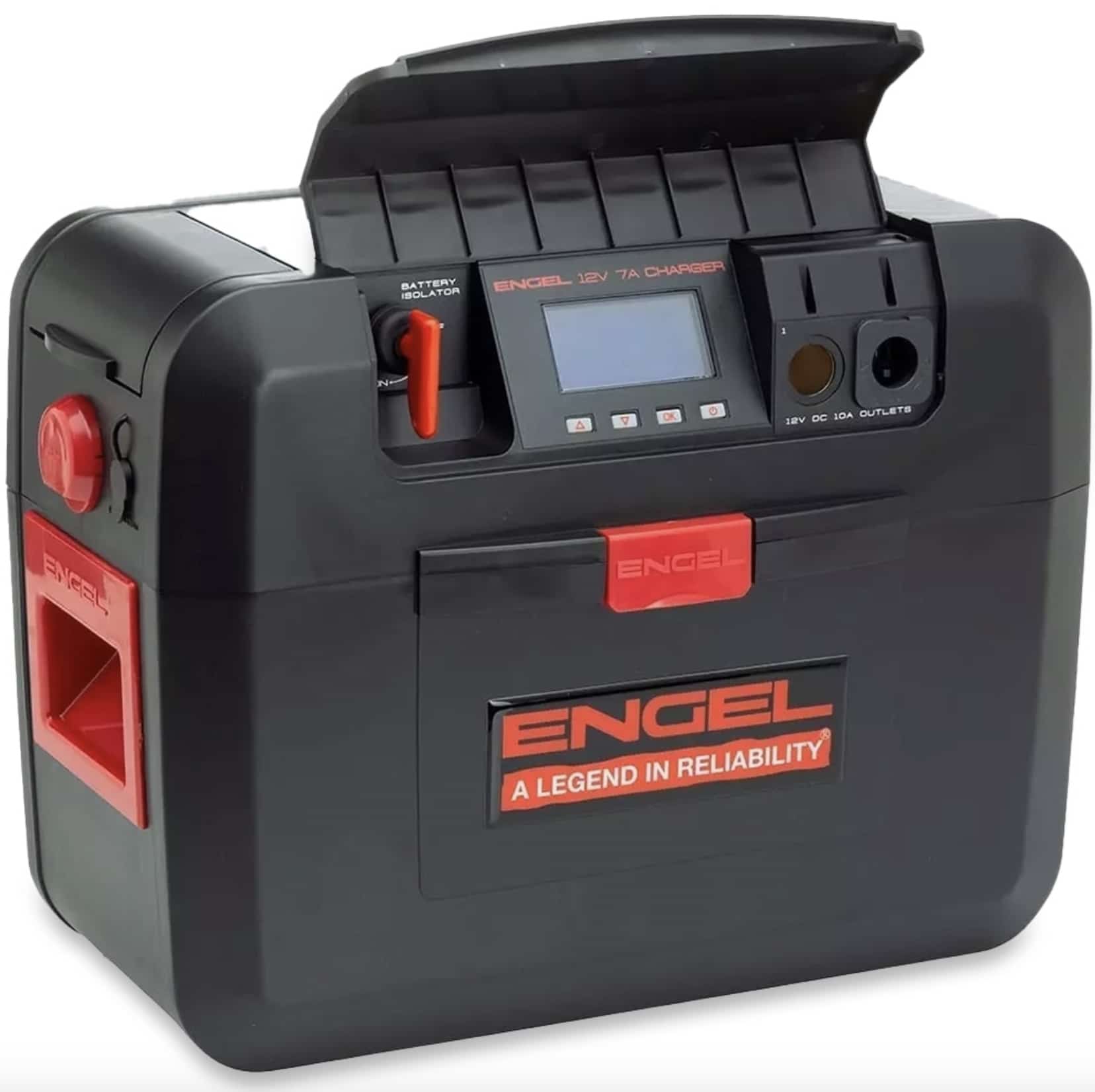
Don’t have room for another battery under the bonnet? Can’t justify the cost of a hardwired dual-battery system? Want something portable to swap between the daily driver, the four-wheel drive, the camper and the boat? Step right this way, champion, and let’s get you set up with a portable power pack.
“What’s a portable power pack?” Good question. Essentially, it’s a battery in a box that you can use to power your 12V accessories (which is a gross oversimplification of what’s really a sophisticated piece of hardware but that’s the gist).
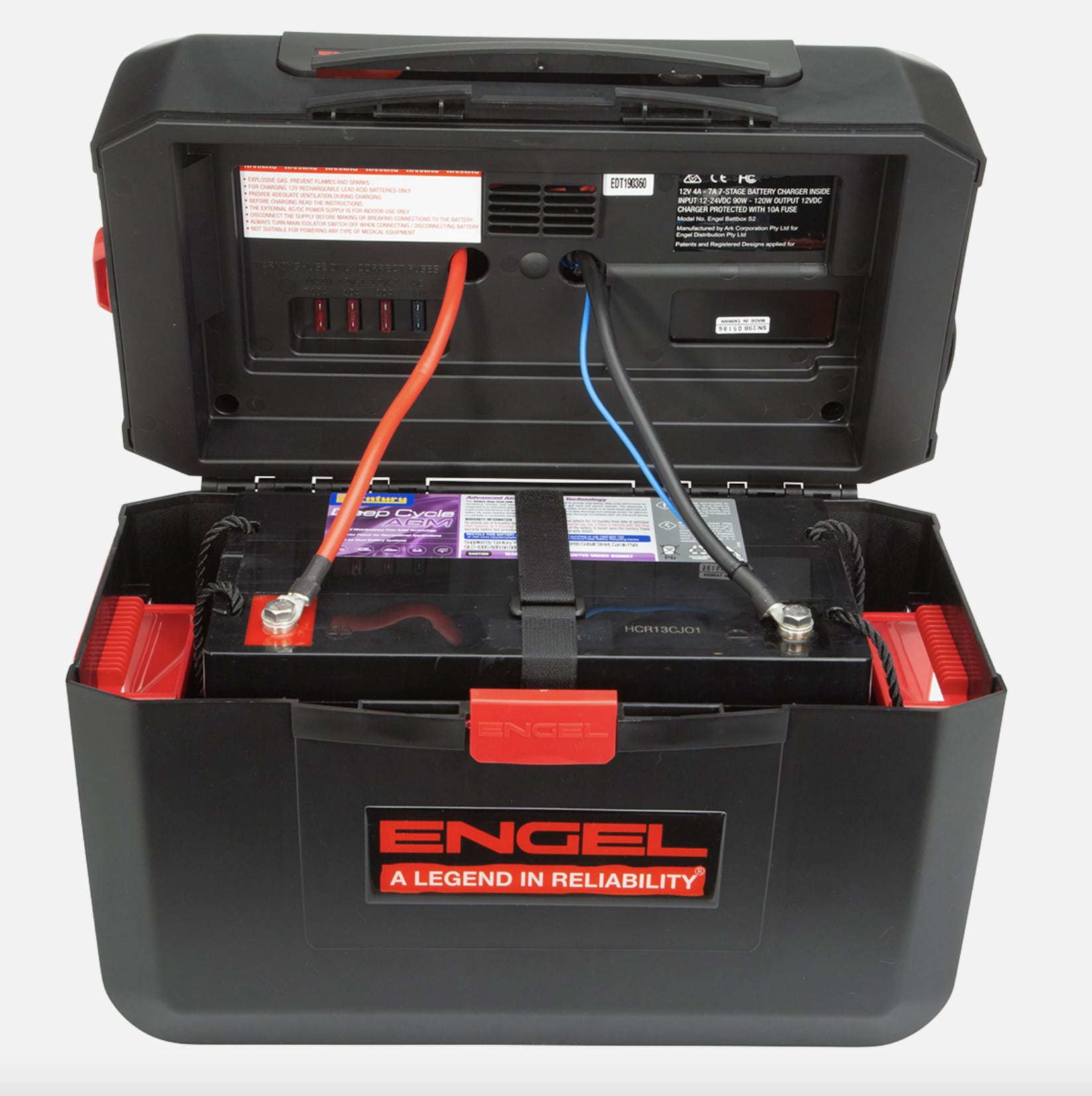
While they’re significantly less costly than an in-vehicle dual battery set-up. Don’t cheap out and buy the first twenty-five-buck online special that comes across your social media feed. Quality matters here. So get a good one – it’s still arguably the cheapest way to power a campsite and a good unit will last you the lifetime of several vehicles.
Grab one, like the Engel Smart Battery Box pictured, that can handle things like solar input, charge from your vehicle while its underway, take 240V charging, as well as be able to handle all your power needs. Oh, and lithium charging capability should be considered a must-have as well. These things are ideal for the occasional camper or for folks that have a 4X4 without any off-the-shelf battery solutions.

If you have a single vehicle that does it all – from the daily drive to work duties to weekend camping missions and the yearly big trip away – a dual battery system is a fantastic addition to keep your 12V supply healthy.
These days, lithium is the way to go. It’s, generally speaking, around twice the price of a traditional AGM system. But it should last four times as long. So the economy is actually outstanding over time. While there’s nothing inherently wrong with an AGM auxiliary set-up, the only real reason to go that way is to keep the cost down. Other than that, lithium is simply better in every way.
A basic 100Ah lithium system (under most circumstances) will keep a fridge and the camp lights running for a couple of days without needing to start the vehicle, however, if you’re at a site for the next couple of weeks or so, you’re going to need a means of keeping a charge up to it, which brings us to our next point…
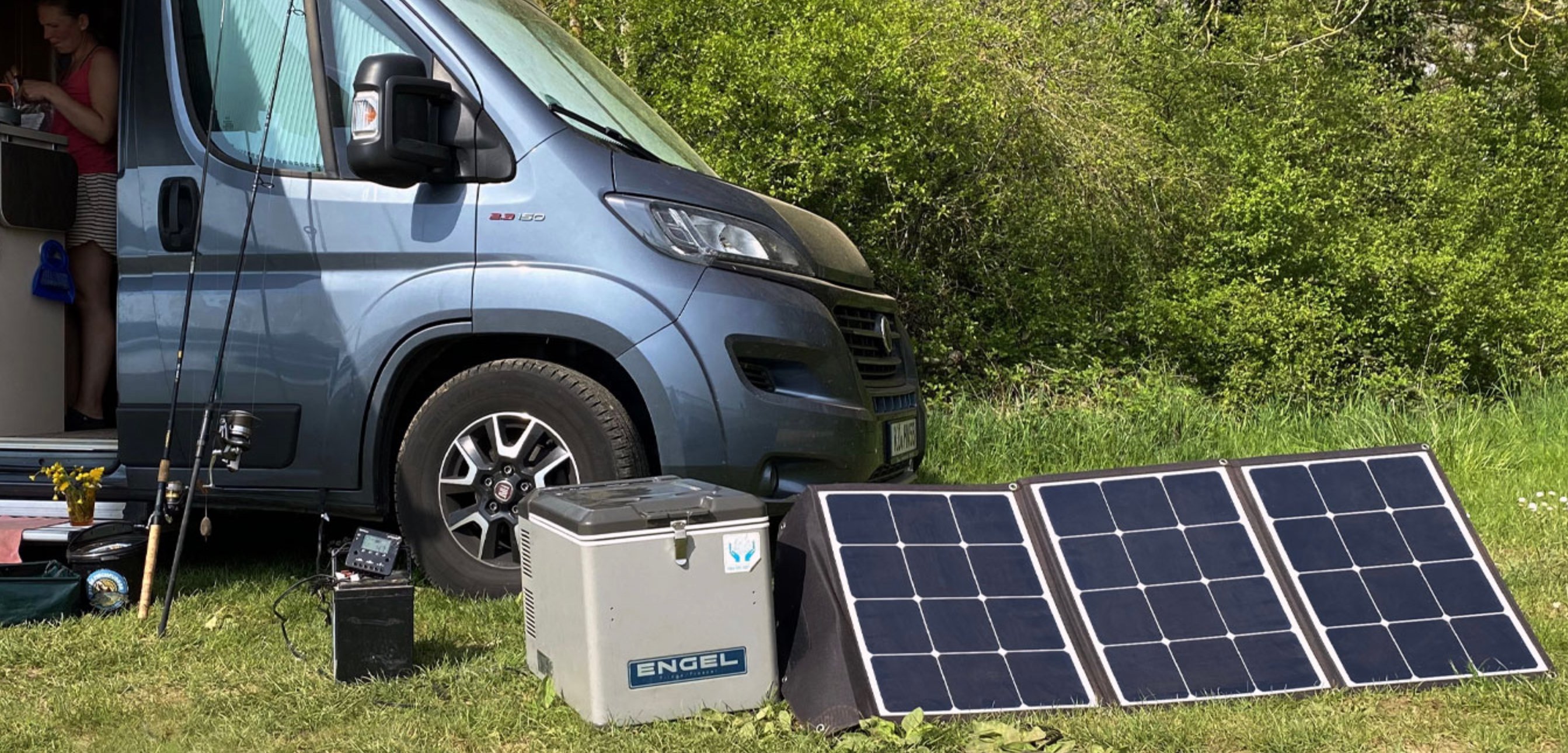
Well, no. Just like you don’t need running shoes to tackle a marathon. It just makes things a hell of a lot better if you do.
You can get a range of solar gear – ranging from panels mounted permanently on your vehicle or camper to foldable blankets and standalone panels – that will keep your battery topped up and the power flowing to your 12V accessories.
The technology is so good today that you’d really have to be nuts to not have some sort of solar system incorporated into your charging set-up. Forget having to idle your vehicle for a couple of hours to keep the pie oven up to temp, grab yourself a couple-hundred watts of free power from the sun and live that good life – because you deserve it, legend.
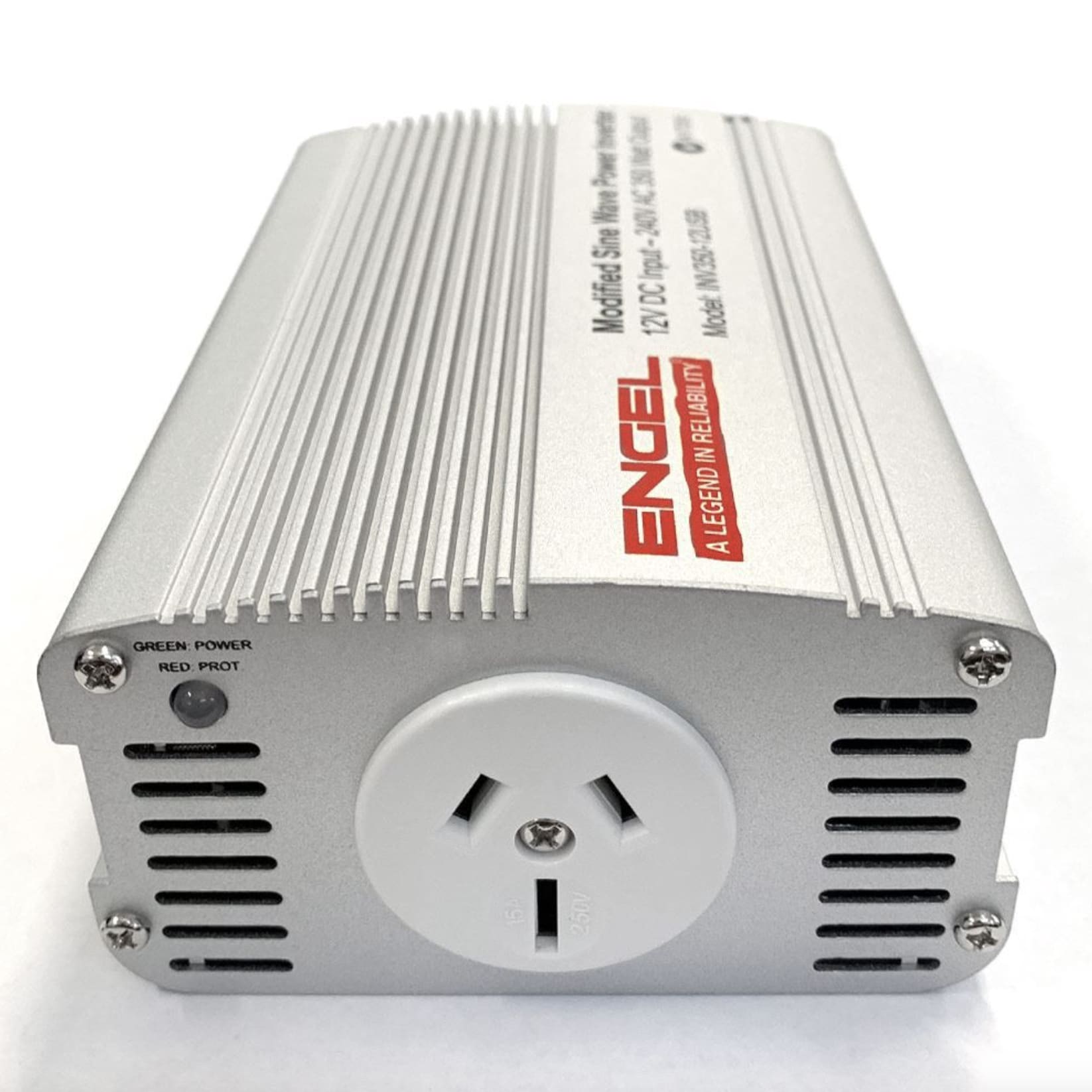
An inverter takes your vehicle’s 12V current and magically “inverts” into 240V, which is what your household appliances run on. So yeah, having an inverter makes a bunch of sense. Particularly if you’re the type of person who loves microwave popcorn around the campfire or needs a hairdryer to keep the frizz to a minimum.
The optimum size of the inverter really depends on the current draw of the appliance you want to run, and the size of the battery system you have. It can even be affected by things like cable thickness and voltage drop, so you’re probs best off consulting an auto-electrician about your individual needs.
One quick note though: if you’re wanting to charge items like phones or laptops or things you really don’t want copping the incorrect charge profile, make sure you get a pure sine wave inverter. These are designed to charge fragile items without issue.
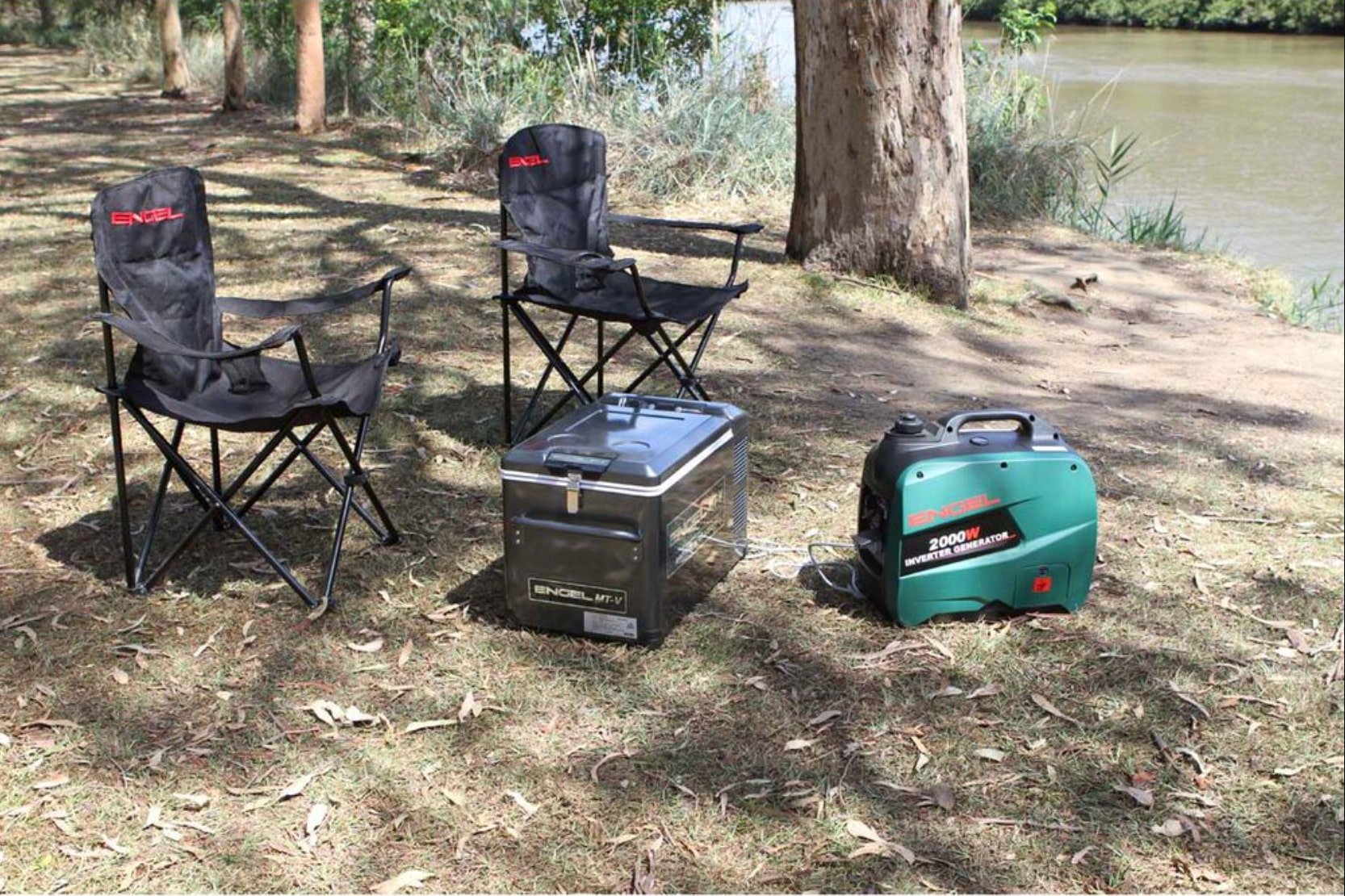
Now we’re getting somewhere. You want power on demand in the middle of the desert while camping? You feel the need to provide enough juice for a rock concert out the back of Bourke? You’re going to need a generator my friend.
Gennies used to guarantee you’d be the least popular person at camp – they were loud, drank more fuel than a carby V8 and were annoying for everyone involved. Thanks to modern tech, however, the new wave of generators are quiet, fuel-efficient and so good at pumping the amps into whatever you need.
A generator is basically a small petrol-powered engine that provides 240V electricity to your caravan or whatever your campsite’s charging requirements are. They’re the bee’s knees in terms of keeping things electrically charged, and if you have the room in your set-up, they’re well worth the outlay.

Make sure you pick one up that has a decent after sales support. Engel’s range of generators for example comes with a four-year warranty – making them one of the best bang-for-buck units on the market.